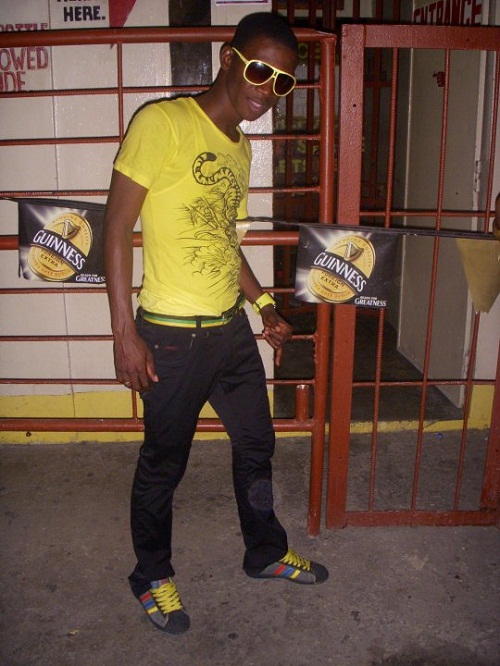THIRTY YEARS OF AIDS…
Thirty years of a disease
Thirty years on, it looks as though the plague can now be beaten, if the world has the will to do so
Jun 2nd 2011 | from the print edition
ON JUNE 5th 1981 America’s Centres for Disease Control and Prevention reported the outbreak of an unusual form of pneumonia in Los Angeles. When, a few weeks later, its scientists noticed a similar cluster of a rare cancer called Kaposi’s sarcoma in San Francisco, they suspected that something strange and serious was afoot. That something was AIDS.
Since then, 25m people have died from AIDS and another 34m are infected. The 30th anniversary of the disease’s discovery has been taken by many as an occasion for hand-wringing. Yet the war on AIDS is going far better than anyone dared hope. A decade ago, half of the people in several southern African countries were expected to die of AIDS. Now, the death rate is dropping. In 2005 the disease killed 2.1m people. In 2009, the most recent year for which data are available, the number was 1.8m. Some 5m lives have already been saved by drug treatment. In 33 of the worst-affected countries the rate of new infections is down by 25% or more from its peak.
- AIDS: The 30 years warJun 2nd 2011
- The history of AIDS: Heroes and villainsJun 2nd 2011
- Saving African children: Faster is not always betterJun 2nd 2011
Related topics
Even more hopeful is a recent study which suggests that the drugs used to treat AIDS may also stop its transmission (seearticle). If that proves true, the drugs could achieve much of what a vaccine would. The question for the world will no longer be whether it can wipe out the plague, but whether it is prepared to pay the price.
If AIDS is defeated, it will be thanks to an alliance of science, activism and altruism. The science has come from the world’s pharmaceutical companies, which leapt on the problem. In 1996 a batch of similar drugs, all of them inhibiting the activity of one of the AIDS virus’s crucial enzymes, appeared almost simultaneously. The effect was miraculous, if you (or your government) could afford the $15,000 a year that those drugs cost when they first came on the market.
Much of the activism came from rich-world gays. Having badgered drug companies into creating the new medicines, the activists bullied them into dropping the price. That would have happened anyway, but activism made it happen faster.
The altruism was aroused as it became clear by the mid-1990s that AIDS was not just a rich-world disease. Three-quarters of those affected were—and still are—in Africa. Unlike most infections, which strike children and the elderly, AIDS hits the most productive members of society: businessmen, civil servants, engineers, teachers, doctors, nurses. Thanks to an enormous effort by Western philanthropists and some politicians (this is one area where even the left should give credit to George Bush junior), a series of programmes has brought drugs to those infected.
The result is patchy. Not enough people—some 6.6m of the 16m who would most quickly benefit—are getting the drugs. And the pills are not a cure. Stop taking them, and the virus bounces back. But it is a huge step forward from ten years ago.
What can science offer now? A few people’s immune systems control the disease naturally (which suggests a vaccine might be possible) and antibodies have been discovered that neutralise the virus (and might thus form the basis of AIDS-clearing drugs). But a cure still seems a long way off. Prevention is, for the moment, the better bet.
There are various ways to stop people getting the disease in the first place. Nagging them to use condoms and to sleep around less does have some effect. Circumcision helps to protect men. A vaginal microbicide (none exists, but at least one trial has gone well) could protect women. The new hope centres on the idea of combining treatment with prevention.
In the early days scientists were often attacked by activists for being more concerned with trying to prevent the epidemic spreading than treating the affected. Now it seems that treatment and prevention will come in the same pill. If you can stop the virus reproducing in someone’s body, you not only save his life, you also reduce the number of viruses for him to pass on. Get enough people on drugs and it would be like vaccinating them: the chain of transmission would be broken.
That is a huge task. It is not just a matter of bringing in those who should already be on the drugs (the 16m who show symptoms or whose immune systems are critically weak). To prevent transmission, treatment would in theory need to be expanded to all the 34m people infected with the disease. That would mean more effective screening (which is planned already), and also a willingness by those without the symptoms to be treated. That willingness might be there, though, if it would protect people’s uninfected lovers.
Such a programme would take years and also cost a lot of money. About $16 billion a year is spent on AIDS in poor and middle-income countries. Half is generated locally and half is foreign aid. A report in this week’s Lancet suggests a carefully crafted mixture of approaches that does not involve treating all those without symptoms would bring great benefit for not much more than this—a peak of $22 billion in 2015, and a fall thereafter. Moreover, most of the extra spending would be offset by savings on the treatment of those who would have been infected, but were not—some 12m people, if the boffins have done their sums right. At $500 per person per year, the benefits would far outweigh the costs in purely economic terms; though donors will need to compare the gain from spending more on knocking out AIDS against other worthy causes, such as eliminating malaria (see article).
For the moment, the struggle is to stop some rich countries giving less. The Netherlands and Spain are cutting their contributions to the Global Fund, one of the two main distributors of the life-saving drugs (the other is Mr Bush’s brainchild, PEPFAR), and Italy has stopped paying altogether.
On June 8th the United Nations meets to discuss what to do next. Those who see the UN as a mere talking-shop should remember that its first meeting on AIDS launched the Global Fund. It is still a long haul. But AIDS can be beaten. A plague that 30 years ago was blamed on man’s iniquity has ended up showing him in a better, more inventive and generous light.
MI GONE HA HA NO MONEY SAH

Merital Family – File
Montego Bay-based dancehall group Merital Family has announced that they are officially parting ways with the Vybz Kartel-led Portmore Empire.
“For the last year and a half, we ah get stifle, we ah get overpriced, dem a tell people say we de pon tour and we de ya nah go nowhere. We ah suffer, we nah get no promotion, we have kids to feed and me have my mother to take care of,” a representative of the Merital Family said in a release.
The group shot to fame in 2010 with the My Money (Ha Ha) song on the Stripclub rhythm and featured a hilarious Vybz Kartel cameo where he delivers a Santa-like laugh.
The song, on the Adidjaheim/ NotNice/Concussion labels, hit No.1 on several major charts in Jamaica and the Caribbean. The group also continued to score hits with other popular songs such as Pray, When We Party andBad Like We on the Clappers rhythm.
However, in the last 12 months, they have seen a marked decline in their level of promotion, and in the output of singles in the local dancehall market.
“From wah day ya, mi see riddim a mek and no Merital, no Jahvinci not on it and when we call Notnice, him say ‘ah the Teacha set it’. So wah kinda suffocation this? We have been loyal to the organisation, and it is not being loyal to us … no video, no promotion, no recording. Mi fed up and tired. We caan reason or have a number for the man who run the organisation that we are supposed to be signed to,” another group member said in the release.
The release said that the level of segregation and separation insisted on by Portmore Empire head, Vybz Kartel, had stifled opportunities to meet and collaborate with other artistes.
“Mi come to do music and sake ah the Empire, we never get to contact certain producers and artistes, or meet with icons in the business like Bounty Killer, just because of the Empire, we just caan link wid nobody else or it would be seen as a straight violation,” a representative of the Merital Family said.
own bookings
The group, however, has continued to record songs, voicing Tell Me Why for the Young Money label for Good Good Productions, and Dancing on the Type R label. They also recently recorded On and On on the Gangsta City Part Two label.
“We are doing our own bookings now and our own management. We are willing to work with all the great producers out there to make our careers happen. Big-up to Vybz Kartel for signing us in the first place, but we have to move on now so that we can earn and support our families. The way things are going on caan work. We fed up and tired,” a representative was quoted as saying in the release.
The group can be contacted through the email address, [email protected].
In the meantime, Popcaan has come out to clear the air, as it was also rumoured that he had also left the Portmore Empire.
Speaking with The STAR, Popcaan rubbished the rumours saying, “Jamaica people unnu done know how the ting go, real thugs neva sell out or buy out fi fly out don’t? So unnu know seh Popcaan seh gaza fi life, a gaza mi name.”
He said that there is no truth to the talks that have been circulating and that he has no reason to leave the musicalfaction mentioning that a collaboration with himself, Vybz Kartel, Shawn Storm and Gaza Slim is on its way.
Dubbed the ‘gaza prefect’, Popcaan made his Portmore Empire debut in 2008 with the single My War but gained international success in 2010 with the hit song Clarks which also featured his mentor Vybz Kartel and label mate Gaza Slim. He is also known for songs such as Dream and Gangster City.
He says fans can also look out for the ‘Empire Forever’ collaboration which features himself, Vybz Kartel, Shawn Storm and Gaza Slim as well as a new song on Firelinks soon to be released rhythm.
WHO A GUH BRING MI MAT??!!!
I do now if smaddy really can pay fi a bakkle a bleach and a pair a eye brow fi come fram Jamaica come tan up like a fake moet bakkle ina dem pawty……………..WELL GG DID.. FI HAR 25TH BIRTHDAY PARTY SHE PAY ……………………yes PAY GARY SHERLOCK FI COME TAN UP INADIPARTY… DI PEOPLE DEM SEH BIG CELEBRITTY STANDA GARY NEVA SHOW UP TILL 3 AM AND PAWTY DUN 4…HIM FI GUH A DI PAWTY DRESSED INA AMERICAN ATTIRE HIM GUH DRESSED LIKE BRITISH…………..DEN GG GUH ASK HIM FI TEK A PICHO WID HAR DI BWAAY BAWL OUT ”’ DEN WHO A GO CARRY MI MAT”?
MR BUCKINGHAM PALACE NEVA SI COME SI STILL NAH SI GARY SHERLOCK A WHA DUH YUH? ALL DI TRAVEL YUH A TRAVEL YUH CYAA MOVE DI WATNOT OUTA DI FRONT A DI LIVING ROOM WID DI BAG A HAT DEM AND PAINT OVA DI PLACE DECENTLY…YUH A CHAT BOUT MAT LIKE YUH A SMADDY..
WIKILEAK
VZCZCXRO4444
RR RUEHCD RUEHGD RUEHHO RUEHMC RUEHNG RUEHTM
DE RUEHKG #0425/01 1351714
ZNR UUUUU ZZH
R 141714Z MAY 08
FM AMEMBASSY KINGSTON
TO RUEHC/SECSTATE WASHDC 6336
RUEHPNH/NVC PORTSMOUTH 0516
INFO RUEHZI/WHA IM POSTS COLLECTIVE
UNCLAS SECTION 01 OF 03 KINGSTON 000425
SENSITIVE
SIPDIS
DEPT FOR CA/FPP
DEPT ALSO PASS TO KCC
POSTS FOR FRAUD PREVENTION MANAGERS
E.O. 12958: N/A
TAGS: KFRD CVIS CPAS CMGT ASEC JM
SUBJECT: FRAUD SUMMARY JAN-MAR 2008 KINGSTON
REF: A) 08 KINGSTON 00091 B) 07 KINGSTON 01742
¶1. (U) SUMMARY. In the second quarter of FY 2008, the Fraud
Prevention Unit focused on public outreach and interagency
cooperation, particularly with our law enforcement colleagues. FPU
organized an interagency roundtable, conducted three offsite field
trips for officers, and gave presentations to airline
representatives, immigration officers, and our friends at the
British and Canadian High Commissions. Kingston’s FPU received 233
Nonimmigrant Visa (NIV) cases, 3 new Immigrant Visa (IV) cases, 9
American Citizen Services (ACS) cases, and 150 external requests
(data checks from DHS, airlines, local immigration, etc.). FPU
processed an additional 160 walk-in cases and entered 318 CLASS
records based on I-275 turn around reports and other tip reports.
Of all the NIV cases referred, 167 were closed, with 49 confirmed
fraud (confirmed fraud rate: 29%). 7 IV cases were closed this
quarter, with three confirmed fraud (confirmed fraud rate: 43%).
END SUMMARY
———————–
NONIMMIGRANT VISA FRAUD
———————–
¶2. (SBU) PERFORMERS: In January, FPU intercepted a group of sixteen
performers who had close ties to the Caribbean Alliance Group, a
petitioner known to FPU to have associations with drug trafficking.
While this group of performers had applied under a new petition,
many of the group had previously traveled for Caribbean Alliance
Group and the bona fides of their previous travel could not be
established. Most of the group could not give convincing answers
about their upcoming tour, so the group was refused and their ties
to the suspect petitioner were documented.
¶3. (U) J1 SUMMER WORK AND TRAVEL PROGRAM: In February, our
interviewers noticed a group of J1 summer work and travel students
whose program dates ran from February to May 2008. FPU investigated
the group and determined that none of the students met the
qualifications for the summer work and travel program. Most were
only part-time students and several claimed to attend the Computer
Professionals Training Institute, a bogus educational entity. The
group’s travel agent, Annie Wilson, had organized their applications
and claimed to represent the group on behalf of the Nu Krew
Employment Agency. However, this was not the first time that Ms.
Wilson had come to the attention of the Fraud Prevention Unit. She
had previously attempted to obtain visa appointments through
fraudulent means. Adhering to Kingston’s new “zero-tolerance”
policy for agents who abuse the expedited appointment process, FPU
has barred Ms. Wilson and the Nu Krew Employment Agency from using
the expedited system. FPU also reported the suspicious U.S.
employment agency, Philadelphia International Institute, to the
Department’s Bureau of Educational and Cultural Affairs (ECA).
¶4. (U) PENN RELAYS: The Penn Relays track and field meet in April of
each year is a major athletic event that is a significant cultural
milestone for many young Jamaican athletes. Hundreds of high school
and university students apply for visas each spring to attend the
meet. However, many mala fide applicants apply for visas to attend
the meet as well, disguising themselves as student athletes. In
order to combat the high fraud associated with this event but still
allow the bona fide student athletes to travel, FPU implemented a
new system to prescreen all Penn Relays applicants. The FPM and FPU
investigator delivered a presentation to over 100 principals and
coaches of the Inter-Secondary School Sports Association (ISSA), a
local organization that coordinates all sports at the secondary
school level. All schools submitted their students’ applications
and passports in advance of their visa interviews. After the cases
were adjudicated, FPU verified the student enrollment of all 350
students over a three day period to ensure that each visa was issued
to a bona fide student athlete. The new screening system was very
successful and resulted in an improved relationship with ISSA and
all the high schools involved in the process.
——————–
IMMIGRANT VISA FRAUD
——————–
¶5. (U) In February 2008, the FPU staff conducted field
investigations on outstanding immigrant visa cases over the course
of three days. Two of the Unit’s Fraud Investigators organized the
trips and invited an entry-level officer (ELO) in the Consular
Section to participate each day, in order to serve as a training
opportunity and help orient the ELOs to the work involved in
conducting a fraud investigation. The two-day field trip covered
four parishes and resulted in the completion of four immigrant visa
case investigations, of which two were determined to be fraudulent
KINGSTON 00000425 002 OF 003
relationships. FPU plans to continue to organize these field trips
bimonthly.
——–
DV FRAUD
——–
¶6. (U) Kingston is not a DV post.
——————————————–
AMERICAN CITIZEN SERVICES AND PASSPORT FRAUD
——————————————–
¶7. (U) FPU continues to investigate passport and CRBA applications
for the ACS Unit by providing Lexis Nexis and other database
searches on applications in order to assist the ACS officers in
their adjudication process. Particularly in the rush of passport
applications that has followed the implementation of the Western
Hemisphere Travel Initiative (WHTI), ACS has brought more cases to
FPU’s attention for verification of U.S. civil documents and Lexis
searches to verify the passport applicants’ claims to citizenship.
————–
ADOPTION FRAUD
————–
¶8. (U) FPU regularly investigates adoption cases where the
applicant’s orphan status is uncertain. Jamaica has a tradition of
informal adoption without documentation, which makes it difficult
for Jamaican applicants to establish their eligibility. Often, an
applicant’s relatives in the United States will adopt the applicant
despite the fact that the applicant does not qualify as an orphan.
FPU conducts regular field investigations to the applicants’ homes
in order to determine who is caring for the applicant and whether
the family meets the poverty definitions of the INA.
———————————–
ASYLUM AND OTHER DHS BENEFITS FRAUD
———————————–
¶9. (U) Post’s DHS/USCIS Officer-in-Charge reports no asylum cases
for the second quarter of 2008.
——————————————–
COOPERATION WITH HOST GOVERNMENT AUTHORITIES
——————————————–
¶10. (U) FPU continued our public outreach efforts with airline and
immigration officer trainings in January and February. FPU trained
60 new airline representatives and 20 immigration officers on
fraudulent document detection, facial recognition and U.S. travel
document requirements.
——————————–
COOPERATION WITH OTHER AGENCIES
——————————–
¶11. (SBU) In February, FPU sponsored a roundtable meeting with all
U.S. law enforcement agencies at Post: the U.S. Marshals, the
Department of Homeland Security, the Drug Enforcement Agency (DEA),
the Narcotics Affairs Section (NAS), the Regional Security Office,
and the Consular Section. It was the first gathering of these
agencies in recent memory to discuss fraud issues and was a highly
successful meeting. The group agreed to implement better
information-sharing practices and to meet more regularly to discuss
fraud trends and other cross-cutting issues.
¶12. (SBU) As a result of the law enforcement roundtable meeting, our
DHS colleagues have begun to regularly share lists of Jamaican
deportees that have arrived on the monthly Justice Prisoner and
Alien Transportation System (JPATS) flights from the U.S. FPU has
used this information to ensure that all deportees have been entered
into the CLASS database. FPU has also received invaluable drug
interdiction intelligence from DEA and NAS, as well as developed a
closer relationship with the U.S. Marshals office to detect wanted
fugitives who apply for visas.
——————————-
COOPERATION WITH THE DEPARTMENT
——————————-
¶13. (U) FPU hosted a three-day visit by the Department’s Fraud
Prevention Programs (CA/FPP) liaison for the Caribbean in February
and shared our best practices, as well as the challenges we face in
KINGSTON 00000425 003 OF 003
detecting and preventing fraud in Kingston. The visit produced
valuable results and strengthened our working relationship with the
Department and our regional colleagues.
—————————
AREAS OF PARTICULAR CONCERN
—————————
¶14. (SBU) FRAUDULENT ENTRY TO CONSULAR SECTION: In March, FPU
received information from the Consular Process Facilitator that
applicants appeared to be entering the compound without valid
appointment letters. After our staff identified several applicants
who had entered improperly, FPU investigated and discovered that
these applicants were arriving at the entrance and asking for
admission to the American Citizen Services Unit. Upon further
investigation, the applicants admitted that they had paid a vendor
outside on the sidewalk approximately US $100 each for information
on how to access the Consular Section. The A/RSO-I interrogated the
vendor and turned her over to the Jamaican Fraud Squad for criminal
investigation.
———————
STAFFING AND TRAINING
———————
¶15. (U) OFFICER TRAINING: In February, FPU coordinated and hosted
an intensive, three hour training session for visa officers to
review visa security features, exemplars of backdated immigration
stamps, common fraudulent groups and trends, and investigative
interviewing skills. The presentation was the inaugural session in
what is planned to be monthly officer training sessions to cover a
range of fraud prevention issues as they arise.
¶16. (U) OFFICER FIELD TRIPS: In March, FPU coordinated an off-site
field trip to the Registrar General’s Department (RGD) to learn
about the process to obtain local birth and marriage certificates.
The RGD provided an insightful presentation and tour of its
facilities. FPU learned that the RGD has many security measures in
place and treats its security paper much like visa foils in terms of
access and accountability. Officers were able to ask questions
about the most common fraud trends that arise in visa interviews
with regards to local birth and marriage records. The director of
the RGD, Dr. Patricia Holness, personally gave the presentation and
guided us on the tour. The field trip provided officers and staff
with a better understanding of the RGD and built confidence in the
RGD’s ability to prevent fraud.
¶17. (U) LES TRAINING: Fraud Investigator Erica Beresford attended
PC-542 Fraud Prevention Workshop at FSI on March 10-14, 2008. Ms.
Beresford learned critical new investigative skills and how to apply
the latest CA/FPP tools. She also benefited from interacting with
her colleagues from around the world. Upon Ms. Beresford’s return
to Post, she shared her experiences in a roundtable discussion with
the rest of the Fraud Prevention Unit. The training was immensely
valuable and Post plans to nominate another LES staff member for the
next available training course.
¶18. (U) The Fraud Prevention Manager (FPM) position is vacant. The
current FPM is Jennifer L. Williams, an ELO in a six month rotation.
****RULES**** 1. Debates and rebuttals are allowed but disrespectful curse-outs will prompt immediate BAN 2. Children are never to be discussed in a negative way 3. Personal information eg. workplace, status, home address are never to be posted in comments. 4. All are welcome but please exercise discretion when posting your comments , do not say anything about someone you wouldnt like to be said about you. 5. Do not deliberately LIE on someone here or send in any information based on your own personal vendetta. 6. If your picture was taken from a prio site eg. fimiyaad etc and posted on JMG, you cannot request its removal. 7. If you dont like this forum, please do not whine and wear us out, do yourself the favor of closing the screen- Thanks! . To send in a story send your email to :- [email protected]





















Recent Comments